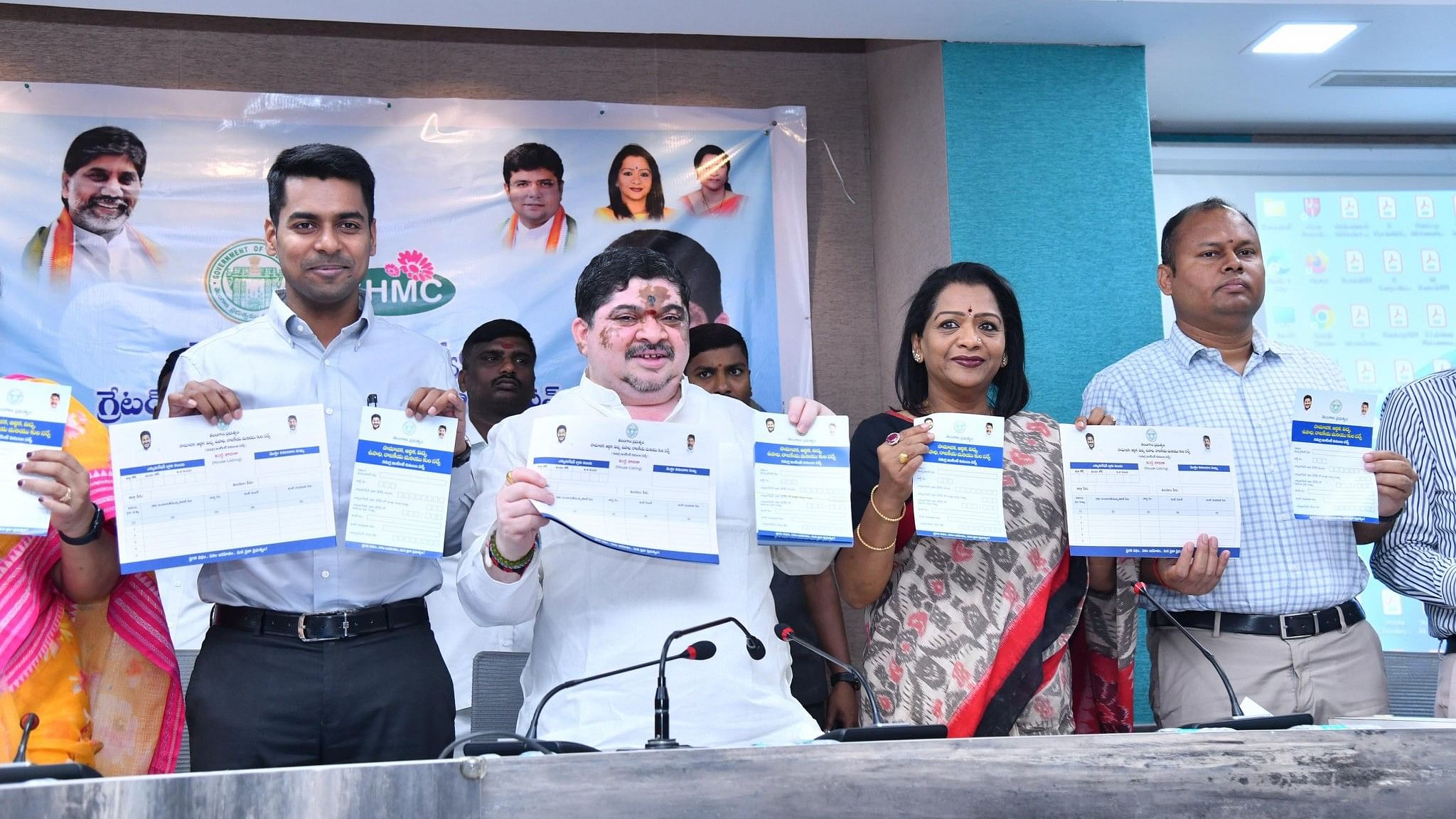
Telangana Transport Minister Ponnam Prabhakar at the launch event of the state's caste survey.
Credit: X/@Ponnam_INC
Hyderabad: Telangana on Wednesday launched the comprehensive socio-economic, employment, and caste survey.
Approximately 80,000 teams of enumerators will conduct door-to-door visits throughout the state to gather various details.
Each team will visit 150 households. The Telangana government has set a target to complete the survey by this month end. Conducting caste survey to determine the exact numbers of BCS has been a key election promise of Congress during the last year's Assembly polls.
While launching the survey at the GHMC office in Hyderabad on Wednesday, transport minister Ponnam Prabhakar urged people to co-operate with the teams, as the survey helps the government design better government schemes.
In the next three days, these survey teams will visit areas and identify the households that are to be surveyed. From November 9 onwards, the actual survey will begin. The survey questionnaire consists of 75 questions in total, of which 56 are main and 19 are supplementary questions. Enumerators will collect data across two main parts: personal details of family members and family-related information.
Enumerators will gather a wide range of information, including the names of household members and their relationship, age, religion, mother tongue, marital status, disability status, mobile numbers (optional), and Aadhaar card numbers.
Educational qualifications and medium of instruction, age at which each member started school and reasons for dropping out, current occupation, annual income, and turnover for businesses, and details on reservation benefits received in education and employment over the last five years will also be collected.
The government has emphasised that all collected data will be kept confidential. Enumerators have been instructed not to take any photographs or documents from families and that only the presence of the head of the family is required during the survey.
The information gathered will be crucial for developing targeted welfare schemes for backward classes (BC), Scheduled Castes (SC), Scheduled Tribes (ST), and other disadvantaged groups and determining reservation quotas in local bodies based on demographic data, said the Telangana government.
Muslims urged to participate in survey
Meanwhile, MLC Amer Ali Khan, has urged the Muslim community to wholeheartedly participate in the Telangana Household Economic and Caste Survey.
Khan emphasised that this door-to-door survey is a pivotal exercise that will allow various communities, including Muslims, to have a more substantial role in governance and representation in local bodies.
He requested Imams, Khateebs, masjid managing committees and mutawallis to actively disseminate information in the Jumma Khutba/Friday sermon, and on notice boards of masjids, dargahs, madrassas and other Muslim religious places. He called on all members of the Muslim community to actively contribute to the survey process to ensure that their voices are heard and their needs addressed in future policies.
Khan highlighted the importance of accurately recording caste and community details during the survey. He pointed out that several Muslim sub-groups are classified under different Backward Classes (BC) categories, and it is essential for the community to be aware of this classification.
For instance, Mehtar (Muslim) is categorised under BC-A, while sub-groups like Dudekula, Laddaf, and Pinjari/Noorbash are classified under BC-B. Additionally, there are 14 Muslim sub-groups, including Shaik/Shiekh, Qureshi, Khureshi, Khatik Muslim, Nai Muslim, Navid, Siddi, Habshi, and others, that fall under BC-E.
He stressed the importance of ensuring that those whose names do not include a surname, such as Shaik or other sub-groups across the BC categories, or those with simple names like "Abdul Khader" or "Mohammed Salman," select the BC-E category during the survey.
Further, Khan outlined the need for participants to correctly fill out columns 5, 6, and 7 of the survey form, which pertain to religion, caste/class, and caste/class category. Proper documentation in these sections is crucial for ensuring accurate representation of the community.